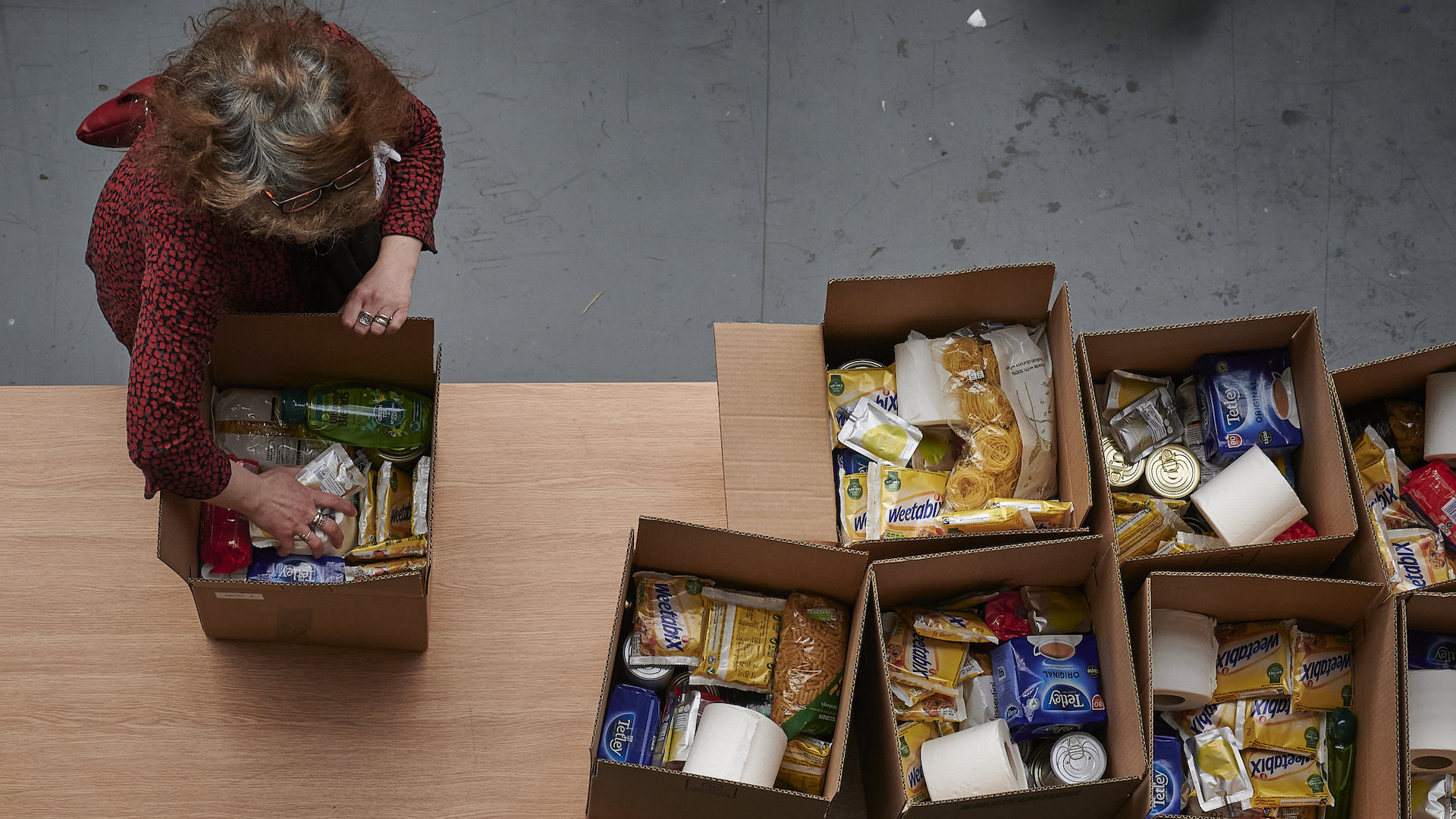Support The Big Issue and our vendors by signing up for a subscription
Linda Burnip, co-founder of anti-austerity group Disabled People Against Cuts, told The Big Issue the new figures are “shocking”.
“Around 2.5 million people [on legacy benefits] have not received any £20 uplift, when at the same time their costs have increased during the pandemic, [so] it is not surprising that so many disabled people have been pushed even further into poverty.”
In February the Disability Benefits Consortium released a report showing 82 per cent of people on legacy benefits said they were spending more than they normally would due to increased food and fuel bills.
At the time, work and pensions secretary Thérèse Coffey told MPs she was “not aware specifically of extra costs that would have been unduly incurred” by disabled people throughout the Covid-19 crisis.
People forced to rely on food handouts had an average monthly income of just £248 after housing costs, the report claimed, or 13 per cent of the average national income.
Advertising helps fund Big Issue’s mission to end poverty
“How can anyone be expected to live on less than £250 a month?” said Jonathan Reynolds MP, Labour’s shadow work and pensions secretary, in response to the findings.
“Universal credit simply isn’t giving people what they need to live on and is trapping families in a cycle of debt and destitution.
“Instead of supporting families through this crisis the government wants to cut universal credit, pushing more people into poverty. It’s just not good enough.”
Average income increased to £335 by July 2020, which researchers said was likely due to the £20-per-week universal credit increase. But the increase was never applied to the old-style legacy benefits and it is scheduled to end in September 2021.
A disproportionate number of single parent families were forced to turn to food banks when Covid-19 hit the UK, the Trussell Trust research showed, accounting for one in five (18 per cent) of households referred for food parcels despite making up only eight per cent of the general population.
By mid-2020 nine in 10 families living in food poverty were in debt, the study showed. Nearly half (47 per cent) owed money to the government, making the Department for Work and Pensions the most common creditor to people at food banks.
Advertising helps fund Big Issue’s mission to end poverty
“People struggling in extreme poverty are pushed to the doors of food banks because they do not have enough money to survive,” said Emma Revie, chief executive of the Trussell Trust, which operates more than 1,200 food banks across the UK.
“Hunger in the UK isn’t about food – it’s about people not being able to afford the basics.”
The charity is calling on ministers to strengthen the social security system – starting by keeping the £20 universal credit increase – after the number of people reliant on the benefit doubled to six million between March 2020 and January this year, largely due to pandemic-driven redundancies and income cuts.
“This research today by the Trussell Trust is deeply worrying with record food bank use showing that too many people have been pushed into hardship by the pandemic,” said Dame Louise Casey, former government adviser on social policy.
“We have to stand together as we pull through this pandemic and not leave people behind, forced to rely on food banks to keep going. That is an abject failure by Government and all of us. Food aid should be a one-off in the UK, not a new form of charity.
Advertising helps fund Big Issue’s mission to end poverty
“It is in this government’s gift to end hunger, but it warrants a concerted cross-government and cross-party action. A plan to end the need for food banks, delivered as an urgent priority”.









